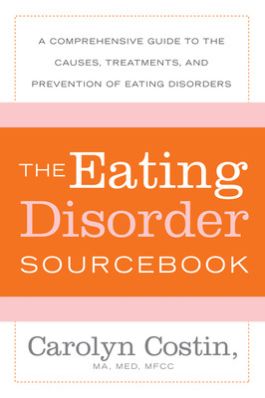The Eating Disorders Sourcebook
Receive via shipping:
- Print bound version of the complete text
Introduction
1. From Diet to Disorder: Problems and Prognosis
2. Young, White, and Female: Myth or Reality?
3. Activity Disorder: When a Good Thing Goes Bad
4. Genes or Jeans: What Causes Eating Disorders?
5. Eating Disorder Behaviors are Adaptive Functions
6. Assessing the Situation
7. Treatment Philosophy and Approaches
8. Individual Therapy: Putting the Eating Disorder out of a Job
9. Sharing the Pain and the Promise in Group
10. Enough About Your Mother, What did You have to Eat Today?
11. Medical Assessment and Management
12. The Psychiatrist’s Role and Psychotropic Medication
13. When Outpatient Treatment is Not Enough
14. Alternative Approaches to Eating Disorders
15. To Those Who Love Them: Guidelines for Significant Others
16. Increasing Awareness and Prevention
Appendices
Sound, sensitive advice for overcoming an eating disorder
Anorexia, bulimia, binge eating, exercise addictions . . . these disorders can be devastating, but they are in no way unbeatable. Therapist Carolyn Costin, herself recovered from anorexia, brings three decades of experience and the newest research in the field together, providing readers with the latest treatments, from medication and behavioral therapy to alternative remedies.
Whether you are living with an eating disorder or you are a loved one or professional helping someone who is, The Eating Disorder Sourcebook will help you:
- Recognize and identify eating disorders
- Discover and work with the underlying causes of an eating disorder
- Make the right choices when comparing treatment options
- Understand what is expected in individual, group, and family therapy
- Know when outpatient treatment is not enough and what else can be done

